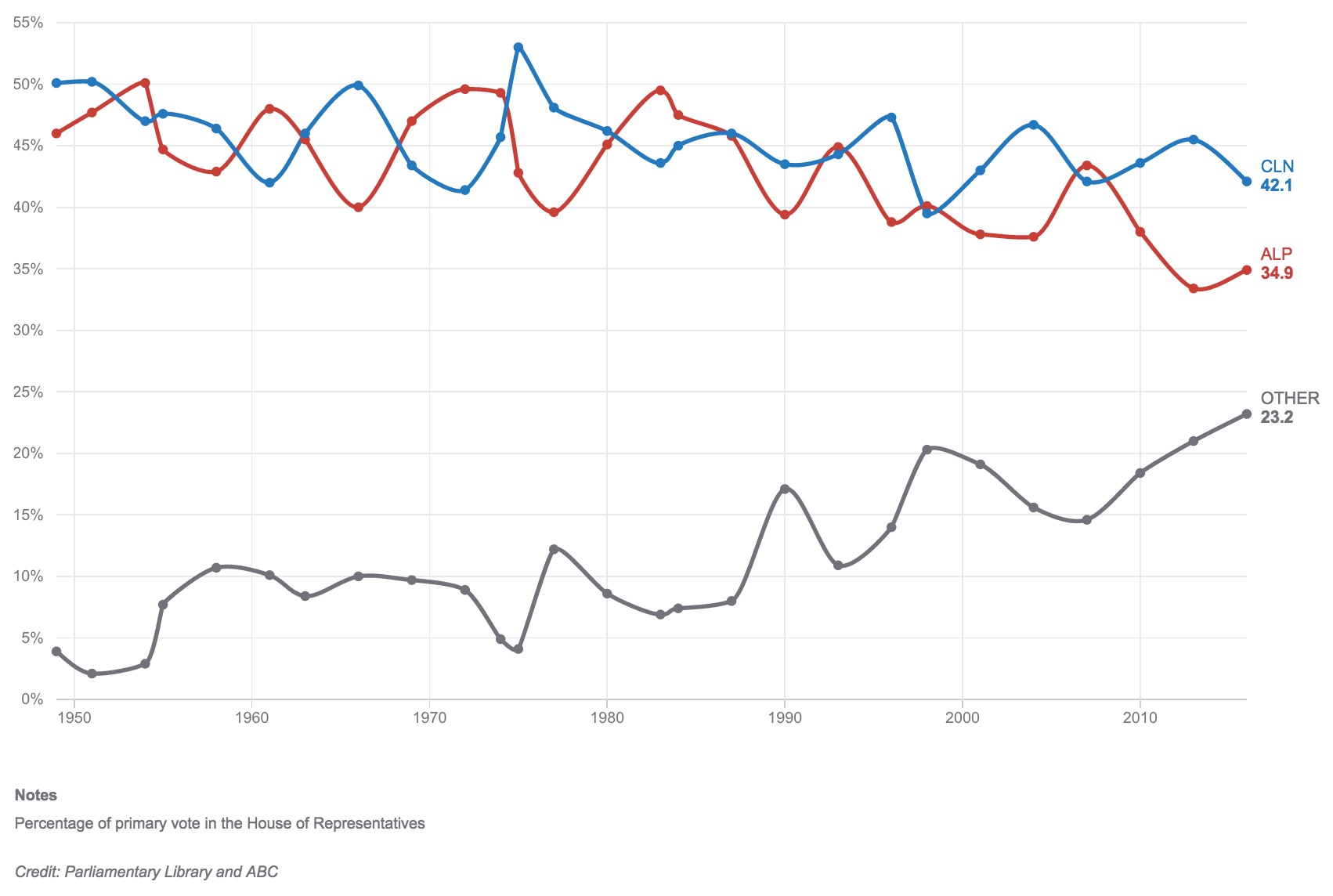Maggie5
Moderator
- Moderator
- #3,251
Interestingly the group we came with and my family (as did I) always voted Liberal. Job opportunities galore, ability to buy a home, save and educate the children, go on holidays etc.Someone pointed out that the age agenda changes because the things that matter change. ie the young dont have any material possessions so its social based agendas and as you get older and acquire meaningful possessions ie house , family (some see them as possessions) and jobs etc then the agendas change with those
The need/desire to maintain your own personal status quo infects our voting
Now that we are all comfortable as boomers, and see what is happening with fewer jobs, inability for many to get into the housing market, climate change and apart from superannuation difficult to save etc, (I know in my case these are the things that concern me about the future of young people and families) more than half vote either Labor or greens.






